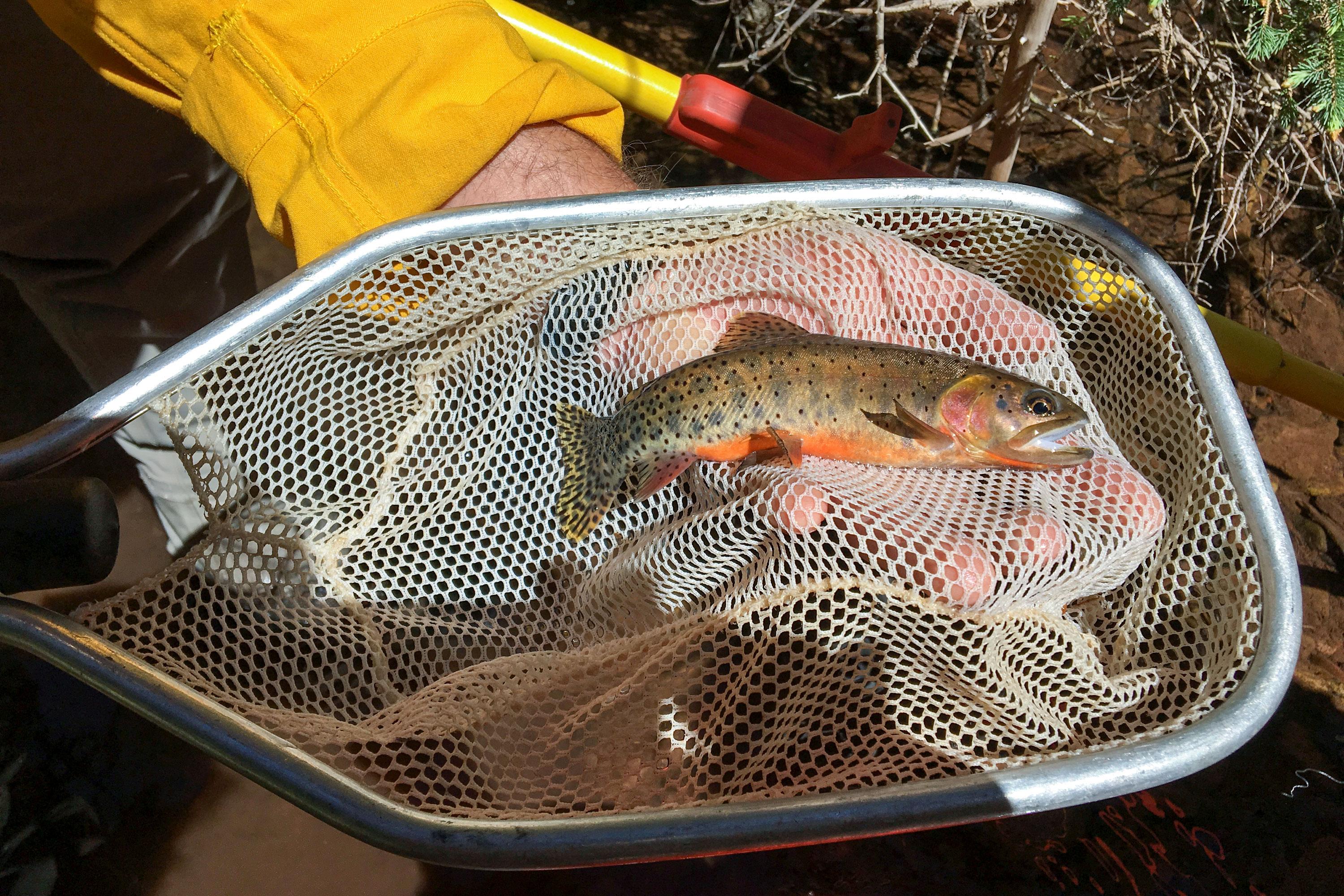

Nearly 60 Colorado River cutthroat trout were taken to a hatchery in Durango where they can be bred and then reintroduced into streams they once inhabited, Colorado Parks and Wildlife said Tuesday.
Their appearance is nearly identical to other Colorado River cutthroat, but they are genetically different, agency spokesman Joe Lewandowski said.
Tests done this year confirmed they were a unique type or "genetic lineage" found in the San Juan River basin. The San Juan is a tributary of the Colorado River.
"There was a team of researchers and they found an old Cutthroat specimen at the Smithsonian," Lewandowski said. "[They] found that the genes of that fish matched the genetics that we found in these San Juan lineage cutthroat trout. That fish was deposited in the Smithsonian back in 1870s."
Ash from the 416 Fire north of Durango this summer was washing into nearby streams and could have killed the fish from the San Juan genetic lineage. Colorado Parks and Wildlife and U.S. Fish and Wildlife crews hiked to two remote creeks last month and removed the fish to save them.
Lewandowski said the offspring from the rescued fish could be released next year.
The San Juan genetic lineage has been found in at least one other location, a ranch south of Pagosa Springs, Lewandowski said.
The San Juan cutthroats are one of three distinct genetic lineages of the Colorado River cutthroat trout. Lewandowski said the other two are found in northwest and southwest Colorado.
"Biologists are pretty excited about it," Lewandowski said. "The point of it is to preserve the natural heritage that we have."







